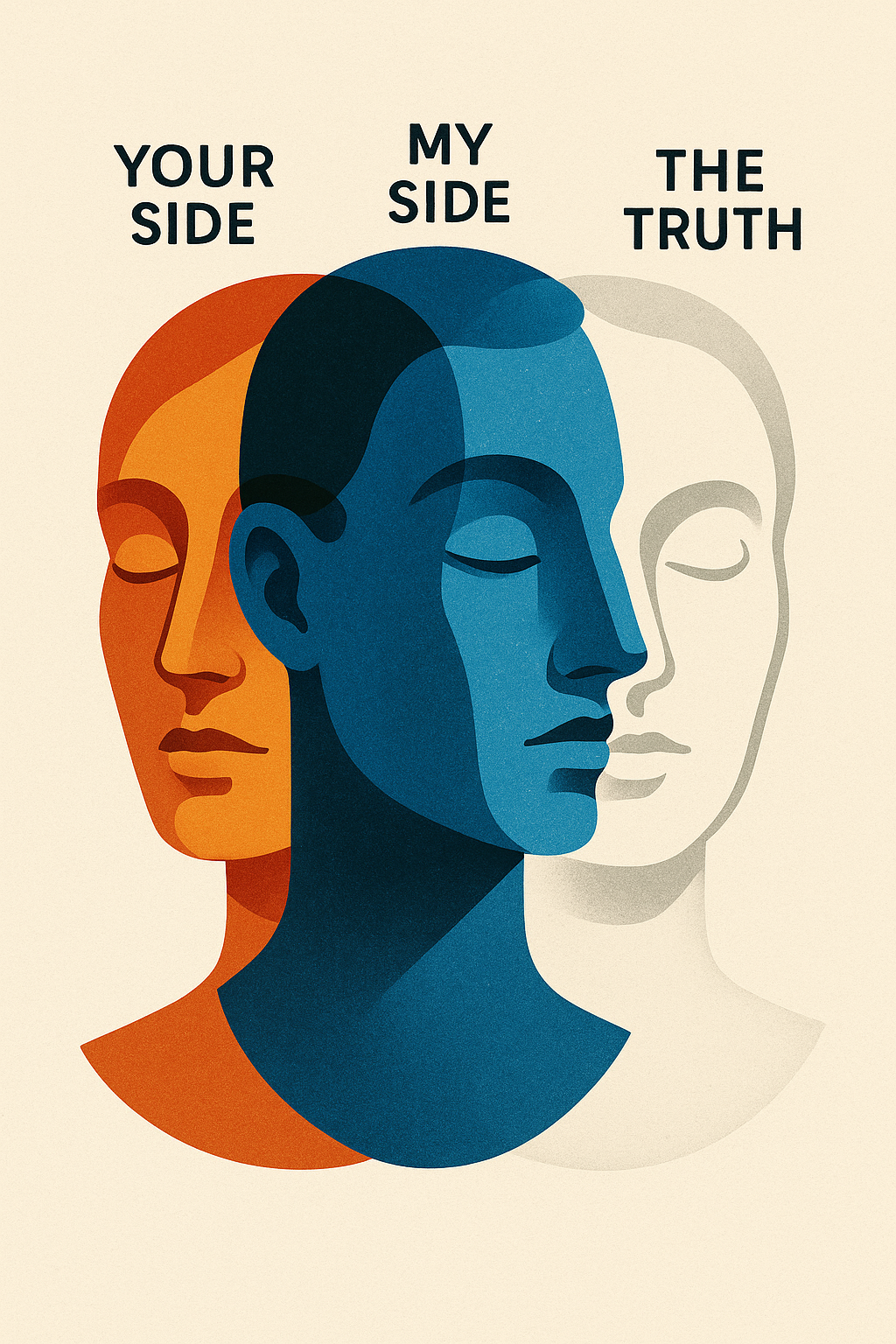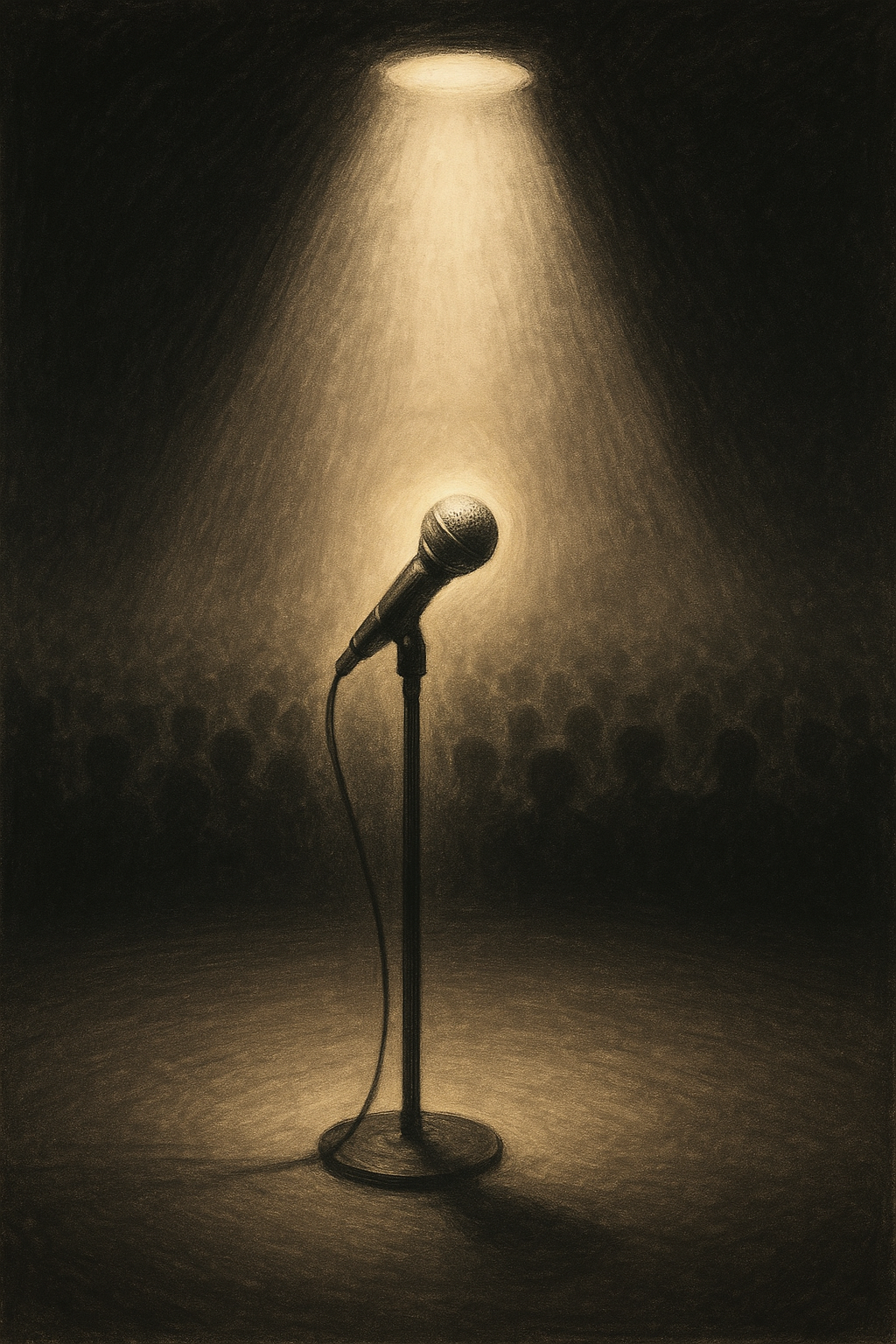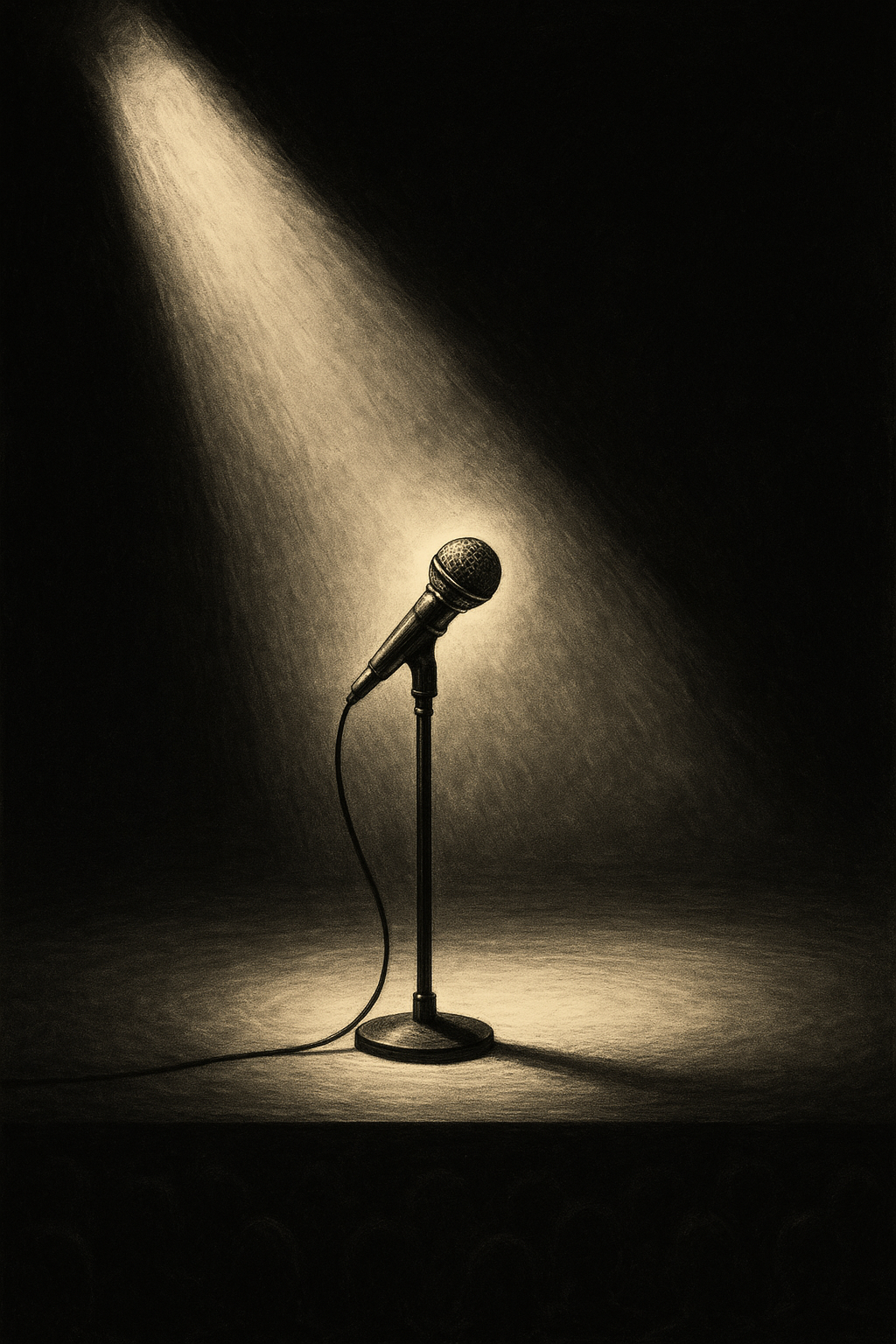When “Telling Your Truth” Becomes a Public Performance
There are three sides to every story: your side, my side, and the truth.
It’s no secret that I’m a private person. I didn’t consciously decide to be this way, it’s simply how I’ve always been. Even as a child, I moved through life letting moments unfold without feeling the need to announce them. Sharing personal details has never been my instinct; I mention things only when they feel relevant. Perhaps that’s why the idea of publicly sharing my life online feels almost unnatural… like stepping onto a stage I never asked to be on. I got off social media over ten years ago and never looked back.
Even with this website, I only share personal anecdotes when they connect to the subject at hand. It’s a space for reflection, not revelation; a place where I share my perspective. And honestly, that’s as far as it will ever go. I suppose, at my core, I’ve just never liked being the centre of attention.
That’s why the idea of “telling your truth” publicly has never truly resonated with me. For this post, I wanted to take a deeper look at why someone might choose to share their truth so openly, and what that means in a world where privacy itself feels almost radical.
The Age Of Public Confession
We live in an age where silence feels suspicious and confession feels courageous. From televised interviews and memoirs to social media storytimes and viral exposés, everyone seems to be “telling their truth.” It has become the anthem of authenticity, the modern emblem of self-empowerment.
But beneath this cultural chorus lies a complicated question: why do people choose to tell their truth publicly, and what happens when they do? Because sometimes, “telling your truth” heals. And sometimes, it divides, distorts, and destroys.
The Intent Behind The Truth
The phrase “my truth” sounds noble, defiant even, but intent changes everything.
Some people speak out to heal, to be seen, or to shed light on injustice. Others do it to seek validation, justify their choices, protect an image, or transfer blame. And some, consciously or not, tell their story in ways that make them the hero or the victim, quietly editing out their own accountability.
Rarely does anyone say, “This is only my version of events.” Yet, as Robert Evans reminded us: “There are three sides to every story: your side, my side, and the truth.”
There is nothing inherently wrong with wanting to be understood. We all crave recognition, empathy, and closure. But when that desire meets a global audience, something shifts. What begins as honesty can easily morph into performance. Psychologists call this performative vulnerability - when openness becomes a strategy for attention rather than a bridge to connection.
In the attention economy, even pain can become a kind of currency. Online, content is capital; the more emotionally charged it is, the higher its market value. The system rewards drama. And when attention converts directly into income, the line between honesty and performance begins to blur. Once suffering becomes monetised, sincerity becomes suspect… even when the story is true.
The Public Confession Culture
We live in a confessional era
People don’t just share what they have done; they share how they feel about it, instantly and often irreversibly. On social media, storytelling is rewarded by algorithms that value emotion over nuance. The more charged, dramatic, or morally clear a story appears, the faster it travels.
So it’s no surprise that people have learnt to frame their experiences as moral tales, with villains and victims, heroes and survivors.
But real life is rarely that tidy. Most stories have messy edges, shared fault lines, unseen contexts, private regrets. Yet the internet hungers for certainty. So when someone says, “Here’s what happened to me,” the world immediately asks, “Whose side are you on?”
The Royal Example: When Private Pain Meets The Public Stage
Take the example of Prince Harry and Meghan Markle’s interview with Oprah Winfrey.
For some, it was a bold act of reclamation: two people finally taking control of their narrative after years of media distortion. For others, it felt like strategic image management, a public airing of private wounds that invited sympathy while casting others in shadow.
The truth is probably both.
Their story wasn’t just about personal pain; it was about power, control, and the deep human need to be believed. But once it became public, it stopped belonging solely to them. It became ours = fuel for headlines, debates, think pieces, and endless polarisation.
That’s the paradox of public truth-telling: the moment you release your story into the world, you lose control over how it’s interpreted. You may share your truth to heal, but the public consumes it for entertainment, ideology, or outrage. Your truth becomes everyone’s narrative to argue over.
Everyday Truth-Tellers
Of course, it’s not just royals or celebrities.
Ordinary people now share deeply personal experiences across social media platforms: cheating partners, abusive workplaces, toxic parents etc . Some find solidarity, community, even justice. Others face trolling, humiliation, or regret.
The act of speaking out can empower, especially when it breaks silence around taboo subjects like abuse, mental health, or discrimination. But the digital audience is unpredictable. It can lift you up, or tear you apart. And once your story goes viral, it is no longer only yours.
There is also the unseen side: the people being spoken about. They may be guilty, flawed, or simply struggling with their own limitations. But public shame is a powerful and enduring punishment. Even if someone has changed, the court of public opinion rarely believes in redemption… unless, of course, you are a celebrity with a PR machine behind you.
And what if those people cannot respond? Bound by NDAs, fear, or the knowledge that speaking would only inflame things further, their silence becomes an admission in the eyes of the audience.
In that way, your truth can become their prison. As the saying goes, “hurt people, hurt people” - and instead of healing, what we often create is another cycle of pain: two sides burdened not only by the original wound, but now by the weight of the public gaze.
The Psychology Of Going Public
So, what makes people decide to go public at all?
Validation: the human need to be seen, heard, and believed
Control: reclaiming a narrative that has been misunderstood or manipulated
Healing: finding catharsis through confession
Connection: hoping others will relate and offer solidarity
Redemption: reshaping one’s identity after mistakes
All of these motives are deeply human. The problem is not that we seek them, it is that we now pursue them in front of millions of strangers.
Public validation feels powerful, but it is fragile. Once your healing depends on how others react, you are giving them emotional authority over your pain.
The Ethical Mirror
Ethically, the act of “telling your truth” requires self-inquiry
Am I sharing this to create understanding, or to get even?
Is my story an attempt to illuminate, or to manipulate?
Will this truth bring growth or division?
Am I being honest, or am I editing my story to look better in the public eye?
Most importantly: who might this hurt, and can they speak for themselves?
Integrity in truth-telling is not about silence; it is about intention. It is telling your story with empathy, humility, and responsibility, acknowledging that your version is not the only one that exists.
Does Public Truth Serve The Public Good?
Not every truth needs a microphone
Some truths are meant for a therapist, a friend, or a journal.
If the goal is to make society better, the story must do more than expose; it must enlighten. If it only divides, humiliates, or entertains, then perhaps it serves ego more than empathy.
Telling your truth is powerful. But power without reflection is dangerous. Because once a truth becomes public, it never fully belongs to you again.
Sometimes, the bravest act is not speaking loudly, but living quietly in alignment with what you know to be true. Your truth is still valid, even when it is not broadcast. Silence can be strength.
“Sometimes, the most revolutionary act of all is to heal without an audience.”



